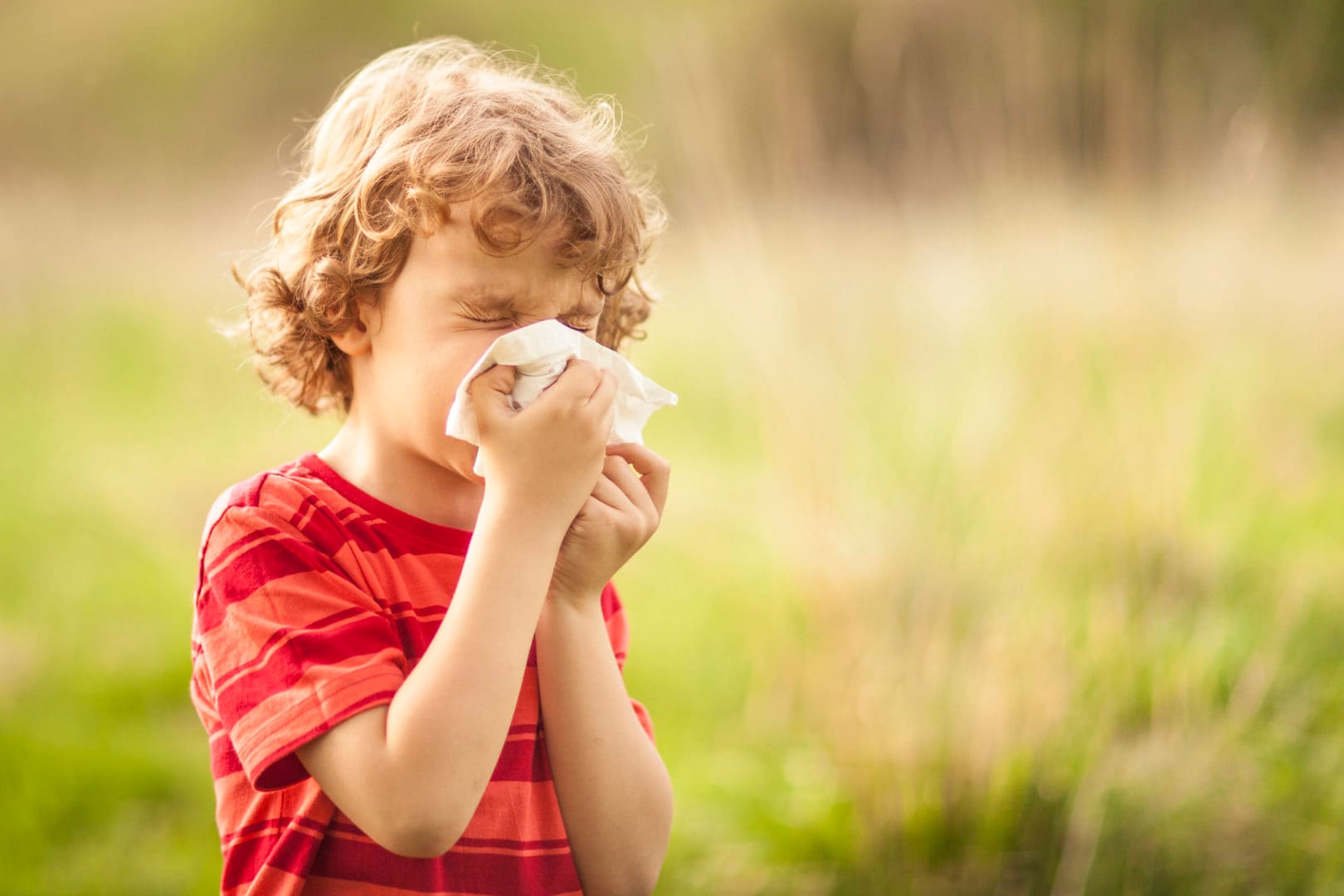When spring or fall hits, allergic rhinitis — or seasonal allergies (or hay fever) as it’s often referred to — does too. While most symptoms of seasonal allergies are unmistakable — sneezing, congestion, itchy nose and eyes — many parents wonder if allergies can cause a fever in their child, too.
“There are a number of key clues that can help people differentiate between a virus and allergies, and fever is one of them,” says Dr. Meng Chen, clinical assistant professor of Allergy and Immunology at Stanford University School of Medicine. “If you have a fever, you most likely have a cold or other infection since allergies should not cause fevers.”
Wondering how to tell the difference between allergies and a virus? Experts offer insight about what to look for when trying to figure out if your child is suffering from hay fever or something else.
1. Can allergies cause fever in kids?
While some symptoms of seasonal allergies, such as a runny nose and coughing, mimic those of a cold, fever doesn’t occur in allergies. “Allergies should never cause a fever in a patient,” says Dr. Nick DeBlasio, a pediatrician and medical director of the Pediatric Primary Care Center at Cincinnati Children’s Hospital Medical Center in Cincinnati. “If a child has a fever, they likely have either a viral or bacterial infection. I often use the presence of a fever as one way to distinguish between allergies and infection.”
It’s also important to keep in mind that babies don’t typically suffer from hay fever — so if they’re congested or generally feel unwell, it’s doubtful it’s related to allergies. “It’s rare for a child to suffer from seasonal allergies under age 2,” notes DeBlasio. Unlike food allergies, which can develop any time during a child’s first year, children need at least two seasons of exposure to the main culprit behind seasonal allergies — pollen — in order to have a negative reaction, according to Seattle Children’s Hospital.
2. Can allergies make you feel hot?
According to Chen and DeBlasio, allergies shouldn’t cause a fever — low grade or otherwise— or make children feel hot. However, running around outside can result in the latter.
“Before I realized my son had hay fever, I worried about him feeling warm when his allergies started acting up,” says mom of three Jaclyn Santos from Hazlet, New Jersey. “Eventually, I realized that the reason his allergies were acting up — and the reason he felt hot — was because he was running around outside.”
3. How do you know if you’re sick or have allergies?
In addition to the presence of a fever, there are a number of symptoms that can help you differentiate between allergies and an illness.
-
Symptom time frame and tempo. “For a traditional upper respiratory infection or common cold, symptoms generally increase for a few days and then resolve within a week or two,” says Chen. “On the other hand, if you’re allergic to pollen, you will likely have symptoms throughout the season.”
-
Response to allergy medications. “If you’re sneezing and have a runny nose and these symptoms get better with antihistamines, which is the most common over-the-counter allergy medication, then you likely have allergies,” notes Chen.
Important note: Allergy medication, such as Benadryl, generally isn’t recommended for children under 12 months of age. Before administering antihistamines or other medications, please speak with your doctor.
-
The presence of aches and pains. “Kids with viral illness will often have aches and pains and probably will have been around someone at home or at school who was sick, as well,” explains DeBlasio.
-
Symptoms get worse outside. “Seasonal allergy symptoms are worse when an allergic child spends long periods outside,” says DeBlasio. “Time spent outdoors won’t change the symptoms of a cold.”
4. When to see a doctor for fever
A fever is what happens when the body is fighting off the germs of an infection or illness; and while, yes, it can be scary (particularly in kids), it’s not always cause for a trip to the doctor. According to the American Academy of Pediatrics (AAP), children should be seen by their pediatrician if they’re younger than 12 weeks and have a rectal temperature of 100.4 F or higher, or have a temperature of 104 F if they’re older.
Additional reasons to call the doctor when a fever is present, according to the AAP:
-
The fever is present for more than 24 hours in a child younger than 2.
-
The fever is present for more than 3 days in a child 2 or older.
-
A child appears very ill, drowsy or is unusually fussy.
-
A child has been in a very hot place, like an overheated car.
-
A stiff neck, severe headache, severe sore throat, severe ear pain, rash or continuous vomiting or diarrhea is also present.
-
The child has had a seizure.
-
The child appears to be getting worse instead of better.
-
There are signs of dehydration present, such as dry mouth and fewer wet diapers.
-
The child already has immune system problems or is taking a steroid.
And of course, nobody knows your child better than you. If something isn’t sitting well with you, feel free to give their doctor a call.






